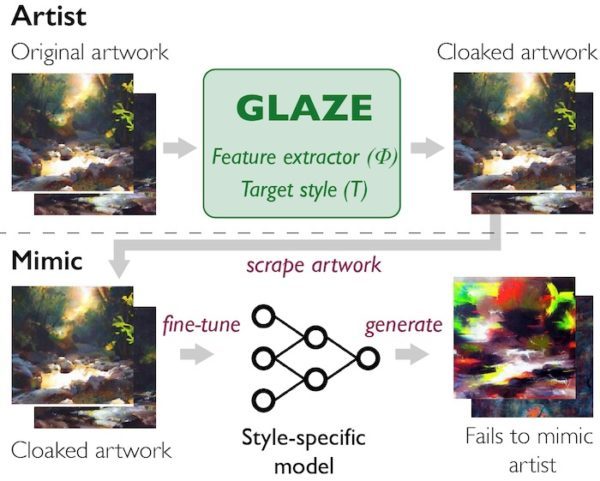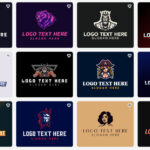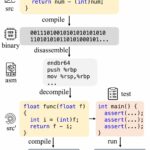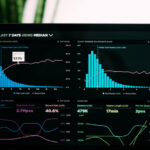Scientists at the University of Chicago have developed a tool capable of deceiving artificial intelligences, which mimic the artistic style of various artists through image-based training.
AI image generators: The appropriation of style and artistic identity
With the rise of AI-driven image generators such as DALL E, MidJourney, and Stable Diffusion, numerous artists have expressed apprehension about these tools’ ability to replicate their distinctive styles.
These software makes it very easy to appropriate the style and artistic identity of artists by entering a simple description, such as “a painting in the style of Gerhard Richter”.

Glaze: How it works
The artists utilize Glaze to make subtle modifications to their artwork that are nearly imperceptible to the human eye, meaning that the artwork still appears nearly identical to the original, but the modifications are significant enough to deceive AI models.
Their idea is to apply a filter on the image to create enough noise in the pixels that the artificial intelligence cannot recognize a particular style.
Glaze not only prevents the copying of an author’s style but also prompts these algorithms to apply the styles of universally known artists such as Vincent Van Gogh.

Next, the artists can upload the image to their online portfolio or showroom, and their work is protected.
Limitations
Glaze is not an ultimate solution, it has several limitations.
Regrettably, Glaze does not provide a permanent solution against AI mimicry. AI technology advances rapidly, posing an inherent challenge for systems like Glaze to remain future-proof. The techniques employed to safeguard artworks today may eventually be overcome by future countermeasures, potentially leaving previously protected art vulnerable.
Glaze tends to exhibit more noticeable changes when applied to animation styles.
Download Glaze Software
You can download Glaze from the project download page https://glaze.cs.uchicago.edu/download.html
Learn more
To learn more you can consult the research article https://arxiv.org/abs/2302.04222, or visit the project website https://glaze.cs.uchicago.edu/download.html.









Leave a Reply